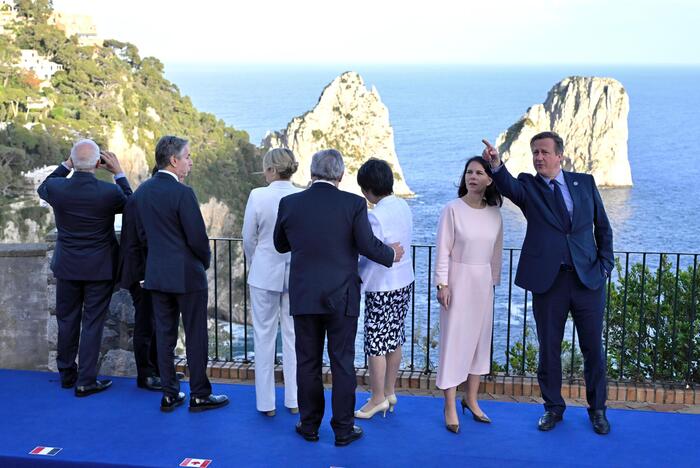Isolate Tehran as much as possible, a destabilizing agent in the Middle East, between Lebanon, Syria, Iraq, Gaza and the Red Sea, but also indirectly on the Ukrainian front, with its drones used against Kiev: this is the certainty that emerged from the G7 Foreign Affairs meeting in Capri, a strategy that involves new, harsh sanctions against Iran, in response to its missile and drone attack - largely unsuccessful - against Israel, which took place last Saturday. Retaliatory measures that also have another, delicate purpose: that of containing Israel's reaction, which risks triggering a perverse cycle of war that could inflame the entire Middle East, with dramatic consequences. The sanctions will target individuals and companies in Iran that are involved in the production, sale and delivery of missiles and drones used both in Ukraine and against Israel, as well as by the Houthis in the Red Sea. Will it be a sufficient strategy to 'punish' and discourage Tehran and limit Israeli retaliation? Preceded by American and British sanctions against Iran, the G7, which also wants to convey a message of unity among democracies in this dossier, hopes so.
But the alarm is high: summarizing the sentiment that prevails at the G7 Foreign Affairs, the head of EU diplomacy Josep Borrell, warned that "we are on the brink of a regional war in the Middle East, which would cause shock waves in the rest of the world ". Italy, faithful to its foreign policy in constant search for peace, as reiterated once again by Foreign Minister Antonio Tajani, relentlessly tries to defuse the bomb in the Near East: "Italy, also in its capacity as president of the G7 , strongly condemned last Saturday's Iranian attack. I personally expressed solidarity with the Israeli Foreign Minister, but I also told him that we must be prudent and refrain from any response or retaliation", Tajani recalled during the conversation with his German colleague. Annalena Baerbock, underlining the importance of Israel not conducting any action either against Iran or in Rafah. Baerbock, for her part, called for a harder line against Tehran. "Iran must be isolated. And at the same time, there must be no further escalation." She added: "It would be fatal for people: in Israel, in the West Bank, in Lebanon, and throughout the region." Israel, which repelled the attack over the weekend also with the help of partners in the region, achieved a "defensive victory - said the German politician - And now it must be ensured diplomatically."
The temperature in the Middle East is scorching. The two main contenders, Israel and Iran, have strong internal motivations that could make the very hard line prevail against any choice of moderation. Will the new sanctions, the appeals and the continuous expression of closeness to Israel be able to stop the shock waves that Borrell predicts? The recent geopolitical history of the region, and the very recent developments, do not leave too much room for optimism, beyond the unity in firmness displayed by the Seven.

